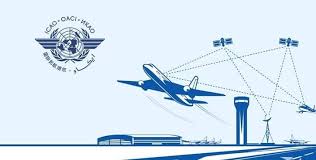ICAO Audits: Ensuring Aviation Safety and Compliance
The International Civil Aviation Organization (ICAO) plays a crucial role in promoting the safe and orderly development of international civil aviation. One of the key mechanisms through which ICAO achieves this goal is through its comprehensive audit program.
ICAO conducts audits of member states’ civil aviation authorities to assess their compliance with international standards and recommended practices. These audits cover various aspects of aviation oversight, including airworthiness, operations, personnel licensing, air navigation services, and more.
By conducting these audits, ICAO aims to identify areas where member states may need to strengthen their regulatory frameworks or operational practices to enhance safety and ensure compliance with international standards. The audit findings provide valuable feedback to member states, helping them improve their aviation systems and meet global safety requirements.
ICAO audits are conducted by a team of experts who review relevant documentation, conduct on-site inspections, and engage with stakeholders to assess the effectiveness of each member state’s aviation oversight system. The audit process is thorough and rigorous, ensuring that all aspects of civil aviation regulation are carefully evaluated.
For member states that do not meet the required standards during an audit, ICAO provides guidance and support to help them address deficiencies and enhance their regulatory framework. This assistance may include training programs, technical cooperation projects, and other capacity-building initiatives aimed at improving aviation safety and regulatory compliance.
Overall, ICAO audits play a vital role in enhancing global aviation safety by promoting adherence to international standards and best practices. By working closely with member states to address areas for improvement identified during audits, ICAO helps ensure that civil aviation remains safe, secure, and efficient for passengers and operators around the world.
8 Essential Tips for Navigating ICAO Audits Successfully
- Ensure compliance with ICAO standards and recommended practices.
- Maintain accurate and up-to-date documentation for audit purposes.
- Conduct regular internal audits to identify and address potential issues proactively.
- Train staff on ICAO requirements and protocols to ensure understanding and adherence.
- Address any findings or deficiencies promptly to prevent reoccurrence during official audits.
- Engage in mock audits to simulate real audit scenarios and improve preparedness.
- Collaborate with other aviation stakeholders to share best practices and insights on ICAO audits.
- Stay informed about changes in ICAO regulations and adjust procedures accordingly.
Ensure compliance with ICAO standards and recommended practices.
To successfully navigate ICAO audits, it is essential for aviation authorities to prioritize compliance with ICAO standards and recommended practices. By aligning their regulatory frameworks and operational procedures with these international benchmarks, aviation authorities can demonstrate their commitment to upholding the highest levels of safety and efficiency in civil aviation. Ensuring compliance with ICAO standards not only helps in passing audits smoothly but also contributes to fostering a culture of continuous improvement and excellence in aviation oversight.
Maintain accurate and up-to-date documentation for audit purposes.
One crucial tip for preparing for ICAO audits is to maintain accurate and up-to-date documentation. Keeping comprehensive records of policies, procedures, training materials, and operational activities is essential for audit purposes. By ensuring that documentation is organized, current, and easily accessible, aviation authorities can demonstrate their compliance with international standards and recommended practices during ICAO audits. This practice not only facilitates the audit process but also reflects a commitment to transparency, accountability, and continuous improvement in aviation safety and regulatory oversight.
Conduct regular internal audits to identify and address potential issues proactively.
One important tip for ensuring compliance with ICAO audit standards is to conduct regular internal audits within your organization. By proactively identifying and addressing potential issues through internal audits, you can strengthen your aviation oversight system and enhance regulatory compliance. Internal audits help uncover areas that may need improvement before an official ICAO audit takes place, allowing you to rectify any deficiencies and demonstrate a commitment to upholding international standards. By staying ahead of potential issues through regular internal audits, you can ensure that your organization is well-prepared for external assessments and maintain a high level of safety and regulatory compliance in the aviation sector.
Train staff on ICAO requirements and protocols to ensure understanding and adherence.
Training staff on ICAO requirements and protocols is essential to ensure a thorough understanding and adherence to international aviation standards. By providing comprehensive training sessions, aviation personnel can stay updated on the latest regulations and best practices set by ICAO. This knowledge empowers staff to effectively implement necessary procedures, maintain compliance with standards, and contribute to a culture of safety within the aviation industry. Training also helps in fostering a sense of accountability and responsibility among employees, ultimately leading to enhanced operational efficiency and improved aviation safety outcomes.
Address any findings or deficiencies promptly to prevent reoccurrence during official audits.
Addressing any findings or deficiencies promptly is crucial to prevent their reoccurrence during official ICAO audits. By taking immediate action to rectify identified issues, aviation authorities can demonstrate their commitment to maintaining high standards of safety and compliance. Proactive measures such as implementing corrective actions, conducting thorough reviews, and enhancing regulatory processes can help strengthen the overall aviation oversight system and ensure that future audits reflect improved performance and adherence to international standards. Timely response to audit findings is key to fostering a culture of continuous improvement and upholding the integrity of civil aviation operations.
Engage in mock audits to simulate real audit scenarios and improve preparedness.
One effective tip for enhancing preparedness for ICAO audits is to engage in mock audits that simulate real audit scenarios. By conducting mock audits, aviation authorities and organizations can evaluate their readiness, identify potential gaps or weaknesses in their processes, and practice responding to audit inquiries. This proactive approach not only helps improve overall preparedness but also allows stakeholders to familiarize themselves with audit procedures and expectations, ultimately leading to a more successful outcome during the actual ICAO audit.
Collaborate with other aviation stakeholders to share best practices and insights on ICAO audits.
Collaborating with other aviation stakeholders to share best practices and insights on ICAO audits is essential for fostering a culture of continuous improvement and excellence in aviation oversight. By exchanging knowledge and experiences with industry peers, civil aviation authorities can gain valuable perspectives on effective audit preparation strategies, regulatory compliance measures, and areas for enhancement. This collaborative approach not only helps strengthen individual audit processes but also contributes to raising the overall standard of aviation safety and compliance across the industry.
Stay informed about changes in ICAO regulations and adjust procedures accordingly.
Staying informed about changes in ICAO regulations is essential for maintaining compliance and ensuring the effectiveness of aviation oversight procedures. By staying up-to-date with the latest regulatory updates from ICAO, aviation authorities can proactively adjust their procedures to align with new requirements and standards. This proactive approach not only helps enhance safety and efficiency in civil aviation operations but also demonstrates a commitment to continuous improvement and adherence to global best practices.




